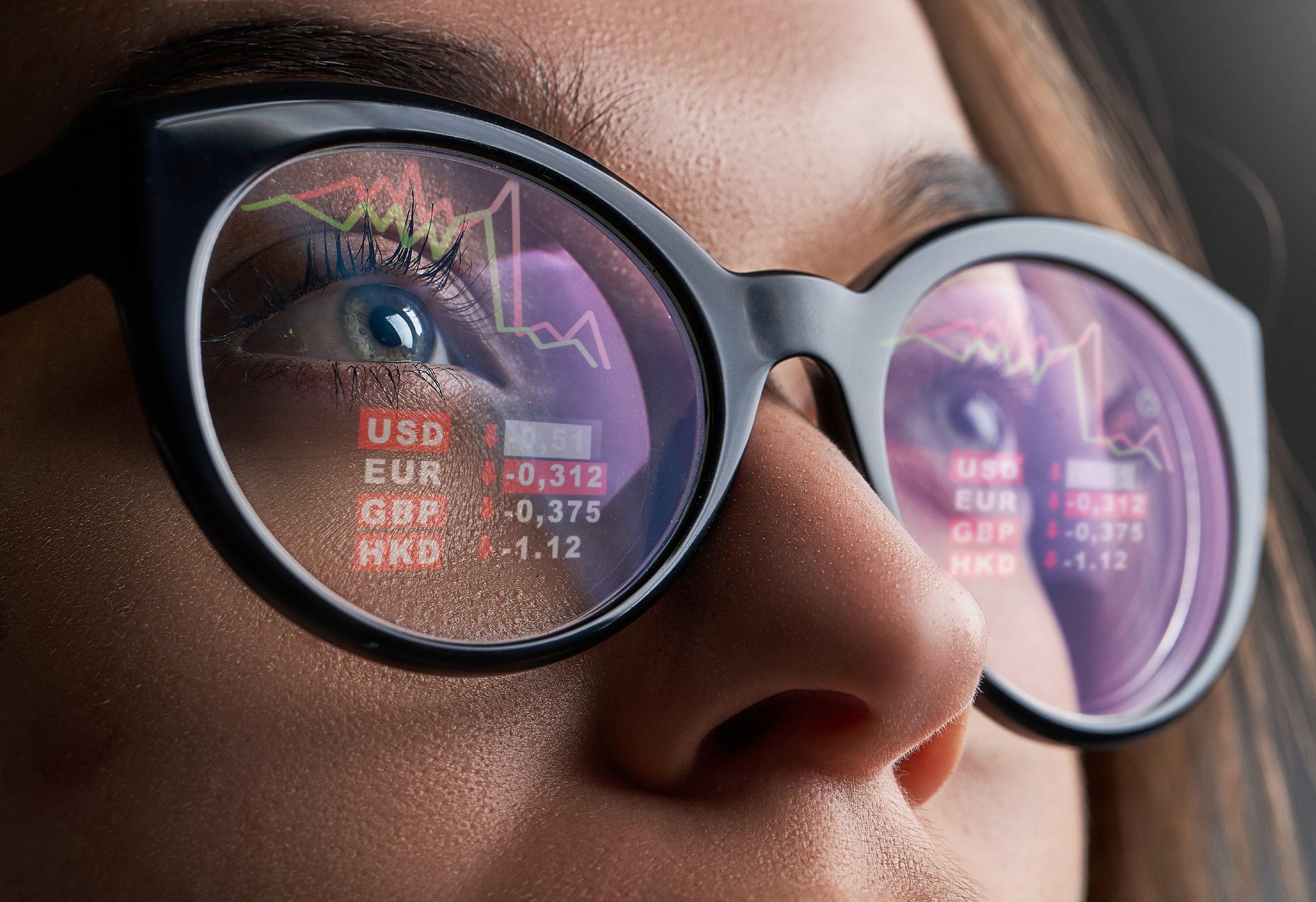
Table of Contents
ToggleSurely you have heard the expression “trading is emotional” and when you start in the world of financial markets is normal to be happy for your gains or fear of failure for your losses. The reality is that the more you can separate your emotions from your operations, the better you will be able to manage an account. Keep in mind that the versatility and efficiency of a trader depends much more on his emotions than on his technical knowledge.
It is popularly said that trading is 80% emotional and 20% cognitive, therefore it is important to strengthen our thoughts by performing activities such as trading hours, reading on related topics and audios that provide on the importance of mastering your thoughts.
Trading with a demo account can help you learn how to use the different trading platforms and the use of their tools, but it does not help in emotional aspects, since you will not have real feelings when you win or lose real money. Therefore, the ideal is to start as soon as possible with a real account, in this way your emotional intelligence will be put to the test, because you will be excited in a positive way when you are winning or on the contrary you will feel fear and anguish when you lose.
The 5 most common emotional mistakes in trading
- Entering the market without stop loss or alerts: Before starting your first operation you must know what is a take profit and a stop loss, the first refers to the profit taking and the second to the loss that you allow yourself to have. When you have defined how much money you allow yourself to lose for each operation you will be guaranteed to last over time in a market, because you have a constant control of your account. Entering the market without taking into account your stop loss could terribly affect your emotions and possibly take you out of the markets, since, if your trade goes down and you do not close the position thinking that it will go up you could easily burn an account.
- Open a trade by following other traders: It is very common that when you start trading you find yourself looking for opportunities to make money. This eagerness can lead you to make decisions such as following other people, who may be in a similar situation to yours in search of knowledge and growth. As we explained in our article on what is Copytrading, making trades by looking at what others are doing can be a double-edged sword. On the one hand you will have no knowledge of the fate of your account and even worse, your profits or losses will never depend on you. The advisable thing to mitigate this mistake is to leverage on people who already have a track record, who can provide you with knowledge that will increase your results and so you can become independent to form your own trading plan.
- Buying and selling on the news: As fundamental analysis explains, there are events or news that can cause the price to rise, fall or simply do nothing. A trader must know what movement the price can make through his analysis and the most common mistake in these cases is to buy right on the day of the news. Here the feeling that you may be left out of that big move (or FOMO, fear of missing out) will want to push you to enter the market. Let’s remember that a fundamental analysis in cryptocurrencies will have more impact some time before the big event. The most popular example is the bitcoin halving, which is known well in advance.

- Not taking profits: If you do not have a plan or strategy designed, you will hardly know when you should take profits. Letting the price run without assuring your profit could give you surprises when there are changes in the market. You can go from earning 5 to 10% and tell yourself that it can go up more and then go on to lose 5 to 10% of your capital. You can avoid all this by setting a stop loss or using the different tools provided by the trading platforms or exchanges. This way you can protect your profits and be safe in case of any unforeseen event.
- Watching the price all the time: this is surely the one that affects our psychology the most, since it will always keep you with a lot of adrenaline and will drive you to make wrong decisions. When you watch the price all the time and in very small periods it can stimulate you to make purchases, but if the price suddenly starts to fall surely to avoid losses you will sell it and you will never have efficiency for fear of losing. We are not saying that trading in low seasonality is bad, but it requires knowledge, a marked strategy and not to be carried away by the emotion of fear. If you are just starting out, the ideal is to look at time frames longer than 2 hours.
Emotions you must avoid in trading
Human beings are full of positive and negative emotions, however we must learn to master them if we want to become great traders. Here are the emotions that are directly involved with the financial markets and that you should learn to control.
- Fear: it is one of the greatest and most difficult feelings to master, since, from the moment you open your first operation you have the fear of losing. This feeling can bring serious consequences such as stress and depression when you do not have absolute control over your fears. For example, if you open a trading account with your savings and it starts to lose large percentages of capital, it can surely generate a lot of concern in your personal finances. Thus, it is advisable to start in the markets with money that can not compromise your stability and it is much less advisable to lend money to start trading.
Fear has its own phases, ranging from uncertainty to doubt, to anguish and ending in despair.
- Greed and avarice: they tend to be our worst allies because they do not allow you to take profits when you should, but let the price run and if you do not protect your profits, you can go from a winning position to a losing one.
- Hope: it is summarized in that feeling that prevents you from closing a position, that is, when you have an open operation and it goes against what you expect, is when your brain begins to convince itself and prevents you from closing the position because you have the hope that the market will turn the situation around. This feeling sometimes becomes so strong that you seek to argue with news, opinions and other external factors. This is why you should work on hope so that it does not invade your thoughts. As a recommendation, define your plan and accept losses when operations do not go as expected.
- Euphoria: is the feeling that drives you to enter the market because of the desire to win. It usually appears in bullish trends, when you hear about a specific asset, you see positive news and the vast majority says “buy”. If you do not control this emotion, you are likely to enter the market at a possibly very high price, where the market is about to change its trend, resulting in large losses.
Therefore, we must work on positive aspects such as confidence, discipline, self-education and independence.
Psychology will always be a factor that will influence decision making, it will not be easy to control when you find yourself operating in the real market, however with practice and hours of trading you will be strengthening your emotions. The key is to be patient and be calm when you start an operation, this accompanied with books, audios and a good mentor to provide you with knowledge. In this way you will avoid drifting and possibly mitigate having large losses.








